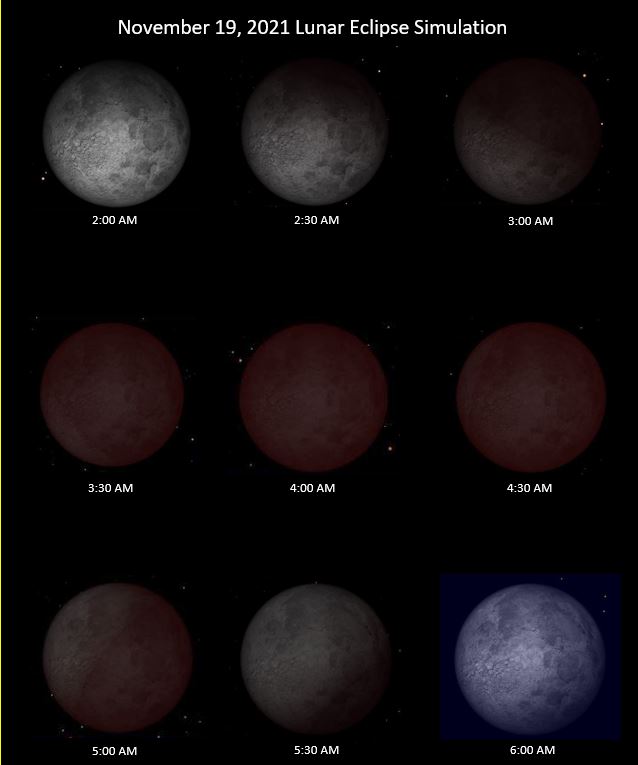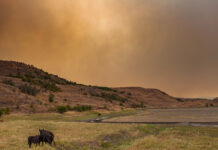
The nighttime sky will put on a lengthy show for those willing to stay up late — or get up early — on Friday morning. An almost-total lunar eclipse will be visible across North America before dawn Nov. 19, and it will be the longest partial lunar eclipse not only for this century but in 580 years, according to space.com.
“The Earth is between the sun and the moon, so the shadow of the Earth is cast on the moon,” said Dr. Matt Marone, associate professor of physics in the College of Liberal Arts and Sciences. “The moon doesn’t generate its own light, but we see it by sunlight being reflected off of it. When we are between the moon and the sun, our shadow is cast onto the moon, and so we don’t see much reflected light.”
The moon will appear to redden, due to red light from the sun being refracted by the Earth’s atmosphere, he said. About 97% of the moon’s diameter will be dark, making it technically a partial eclipse but very close to a total one.
The full event on Friday will span about six hours, with the actual shadowing of the moon lasting nearly three hours and 30 minutes, according to space.com. The moon’s orbit isn’t a perfect circle, making its distance from Earth vary throughout the month. The eclipse on Friday is especially long because the moon will be at its farthest point, or apogee, from Earth.
The moon will start to slowly darken at 1 a.m. and will be heavily darkened by about 2:15 a.m., Dr. Marone said. The eclipse will be near totality and appear very dark red around 3:45 a.m. The moon will begin to brighten back up a little after 4 a.m., and everything will be back to normal by 7 a.m.
Skies are expected to be partly cloudy in Middle Georgia on Friday, but that shouldn’t impact views of the eclipse.
“It should be pretty visible everywhere,” Dr. Marone said. “You don’t have to go out into the countryside to see this, because it should be quite visible from any location. You should be able to see it in cities.”







